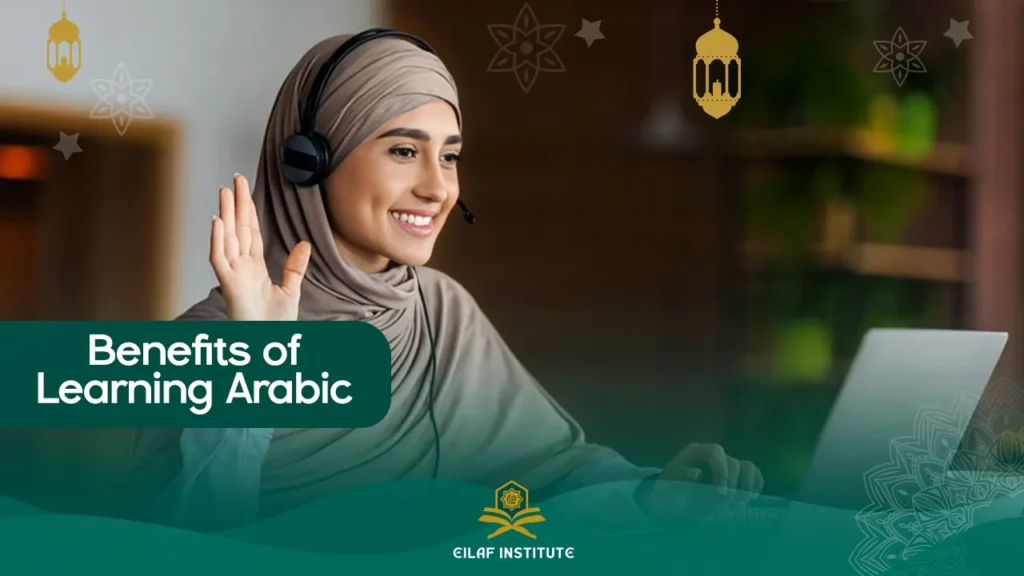While many options exist, the unique and far-reaching benefits of learning Arabic make it a particularly compelling choice for ambitious individuals.
This article delves into the tangible advantages that come with mastering this rich and complex language. We will explore how it can supercharge your career and more.
What Are the Key Benefits of Learning Arabic?
The advantages of studying Arabic are multifaceted, extending far beyond simple communication.
They represent a holistic improvement to one’s life, impacting career trajectory, mental acuity, and global perspective.
The key benefits of learning Arabic can be categorized as:
- Strategic Career Advancement: Gaining a competitive edge in high-demand sectors like diplomacy, international business, technology, and journalism.
- Cognitive Enhancement: Sharpening your mind through the unique neurological challenges and rewards of a new linguistic system.
- Deep Cultural Immersion: Accessing a rich and diverse cultural heritage spanning millennia, from ancient poetry to modern cinema.
- Transformative Travel Experiences: Engaging with local communities on a more authentic level across the Middle East and North Africa.
Book online Arabic classes with us today
Enhancing Your Career: Arabic as a Strategic Skill
In the global marketplace, language skills are a powerful differentiator, and Arabic stands out as a critical asset.
The demand for proficient Arabic speakers in the West far outstrips the supply, creating a significant advantage for those who possess this skill.
One of the primary professional benefits of learning Arabic is access to high-growth economic regions.
The economies of the Gulf Cooperation Council (GCC) countries, including the UAE, Saudi Arabia, and Qatar, are diversifying beyond oil into finance, technology, and tourism.
Proficiency in Arabic signals a deep commitment to the region, fostering trust and opening doors for lucrative partnerships. This makes Arabic for global careers not just an asset, but a strategic necessity for those in international trade.
Furthermore, governments and non-governmental organizations consistently list Arabic as a critical language.
The U.S. Department of State, intelligence agencies, and diplomatic corps actively recruit individuals with Arabic skills for roles in diplomacy, security, and humanitarian aid.
Expertise in the language is crucial for effective Arabic for diplomacy and negotiation, allowing for nuanced understanding and stronger international relations.
Read now: Is Arabic a Difficult Language To Learn?
Boosting Cognitive Abilities: How Arabic Sharpens the Mind
Learning any new language boosts brain function, but Arabic offers a potent mental workout. Its root-based structure trains the brain to recognize patterns and build connections, enhancing memory and problem-solving skills.
Research from institutions shows that bilingualism improves focus and multitasking abilities, thanks to the mental flexibility required to switch between languages.
Arabic, with its right-to-left script and unique grammar, stimulates neuroplasticity and strengthens cognitive reserve, an important factor in delaying age-related mental decline.
In short, learning Arabic is a long-term investment in your brain health.
Cultural Awareness and Intercultural Communication
Language is the key that unlocks the door to culture. To learn Arabic is to gain an insider’s view into the rich tapestry of Arab societies, which are incredibly diverse and often misunderstood.
You will be able to appreciate the profound beauty of the Qur’an in its original language and understand the intricate wordplay in the poetry of Rumi or Al-Mutanabbi.
Understanding the language allows you to grasp concepts that don’t translate directly into English, such as the deep-seated value of hospitality (karam) or the communal spirit of a family gathering. This is a deeply rewarding aspect that adds another layer to the benefits of learning Arabic.
Arabic for Travel and Personal Growth
For the adventurous traveler, speaking Arabic transforms a trip from a passive sightseeing tour into an active, immersive experience.
The Arabic language travel benefits are immediate and impactful. Imagine being able to:
- Navigate bustling souks in Marrakech with confidence.
- Order authentic local dishes in Beirut without pointing at a menu.
- Have a genuine conversation with a Bedouin guide in the deserts of Jordan.
- Understand the Egyptian stories behind historical sites from a local perspective.
These interactions create meaningful connections and memories that last a lifetime.
This personal growth and the ability to connect with millions of people on their own terms are one of the most enriching benefits of learning Arabic.
Book your Egyptian Arabic language course now
Choosing the Right Course: What to Look for When Learning Arabic
To unlock these benefits, choosing the right learning path is essential. The most important first step is understanding the difference between Modern Standard Arabic (MSA) and regional dialects.
- Modern Standard Arabic (MSA): This is the formal language used in news broadcasts, literature, and official government business across the Arab world. It is the best choice for professional and academic goals.
- Dialects (e.g., Egyptian, Levantine, Gulf): These are the languages of daily life. Learning a dialect is essential for deep personal connections and immersive travel.
FAQ
Is Arabic useful for professional growth?
Yes. Arabic is highly valued in fields like finance, diplomacy, tech, and energy. The shortage of skilled speakers makes it a strong asset for better jobs, higher salaries, and global career opportunities.
Does learning Arabic improve cognitive health?
Absolutely. Its unique structure strengthens memory, boosts problem-solving, and builds cognitive reserve, supporting brain health and long-term mental sharpness.

